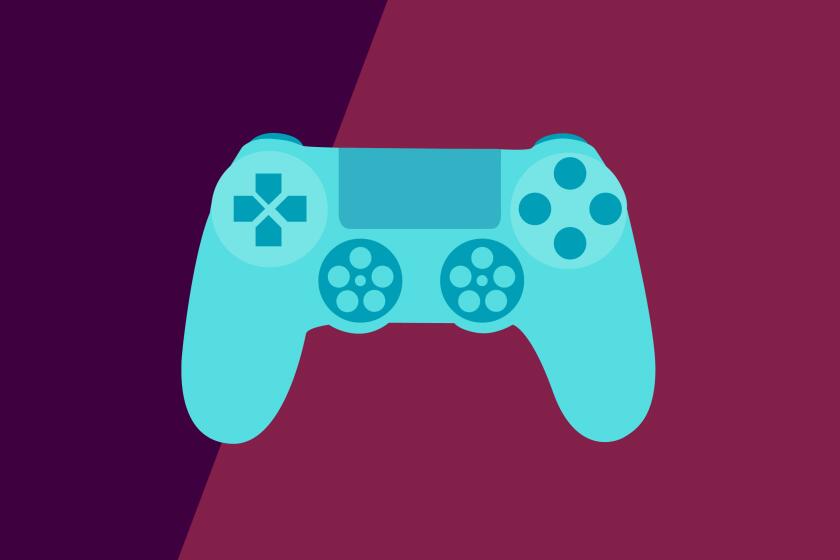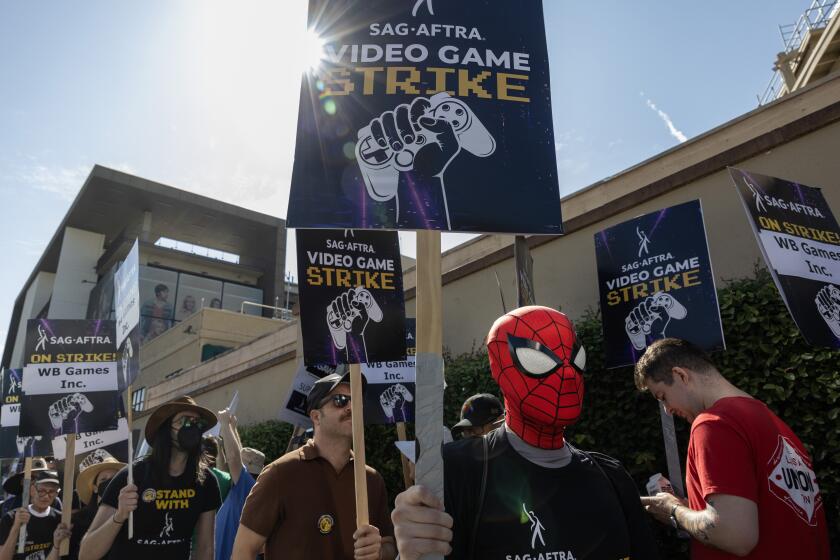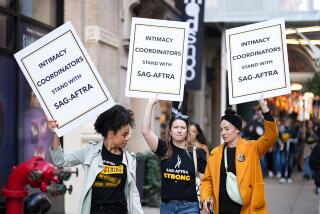SAG-AFTRA calls strike against ‘League of Legends,’ the latest move in video game actors’ battle

SAG-AFTRA has added “League of Legends” to its list of struck video games in an effort to punish audio company Formosa Interactive for allegedly violating terms of the ongoing strike by video game actors.
The performers union officially un-exempted “League of Legends” from the walkout Tuesday after filing unfair labor practice charges with the National Labor Relations Board against Los Angeles-based Formosa Interactive, which does postproduction work.
The Screen Actors Guild-American Federation of Television and Radio Artists has accused Formosa — which counts “League of Legends” among its most popular projects — of attempting to “subvert the video game strike” by recruiting nonunion talent for one of its struck titles and operating under the guise of a shell company.
The union — which condemned Formosa’s alleged actions as “an appalling attempt to evade a strike action and destroy performers’ rights under labor law” — also claims that the company tried to shelve the struck game shortly after the work stoppage commenced, but was told “that was not possible.”
Video game actors are on strike after performers union SAG-AFTRA and the video game companies couldn’t agree on AI terms.
Roughly 2,600 performers doing voice-over and motion-capture work in the video game industry have been on strike since July after the union and video game developers could not reach an agreement on the use of artificial intelligence.
“It’s bad enough that Formosa and other companies are refusing to agree to the fair A.I. terms that have been agreed to by the film, television, streaming, and music industries,” Duncan Crabtree-Ireland, chief negotiator and national executive director of SAG-AFTRA, said in a statement.
“To commit illegal unfair labor practices is beyond the pale and won’t be tolerated by SAG-AFTRA members. Formosa will be held accountable, starting with an immediate strike of League of Legends.”
The film and TV industry’s IP bubble is not popping any time soon. But the industry is finding franchises in new places.
Formosa Group Senior Vice President Paul Lipson denied the allegations in a statement to The Times.
“We fully reject SAG-AFTRA’s allegations and have not acted in any manner to undermine employee or union rights, nor our relationship with the union,” Lipson said. “We believe the strike of League of Legends, a game unrelated to the union’s claims, is not appropriate. We stand with developers, publishers, platform holders, and talent to support global game development in a way that is safe and ethical for all.”
In a statement provided to The Times and posted online, “League of Legends” developer Riot Games said the title “has nothing to do with the [unfair labor practice] complaint mentioned in SAG-AFTRA’s press release.”
“We want to be clear: Since becoming a union project five years ago, League of Legends has only asked Formosa to engage with Union performers in the US and has never once suggested doing otherwise,” the statement continued.
“In addition, we’ve never asked Formosa to cancel a game that we’ve registered. All of the allegations in SAG-AFTRA’s press release relating to canceling a game or hiring non-union talent relate to a non-Riot game, and have nothing to do with League or any of our games.”
SAG-AFTRA says 80 video games have agreed to abide by its proposed AI terms amid the ongoing video game actors’ strike.
SAG-AFTRA is seeking a new interactive media agreement that would require video game companies to inform performers about how their work will be used, obtain their consent and compensate them accordingly when digitally replicating their voices, movements or likenesses with AI.
Earlier this month, the labor organization announced that the makers of 80 video games had reached side deals with SAG-AFTRA agreeing to the union’s AI terms in exchange for a strike pardon.
A spokesperson for the struck video game companies, Audrey Cooling, has previously said that the employers “have worked hard to deliver proposals with reasonable terms that protect the rights of performers while ensuring we can continue to use the most advanced technology to create great entertainment experiences for fans.”














